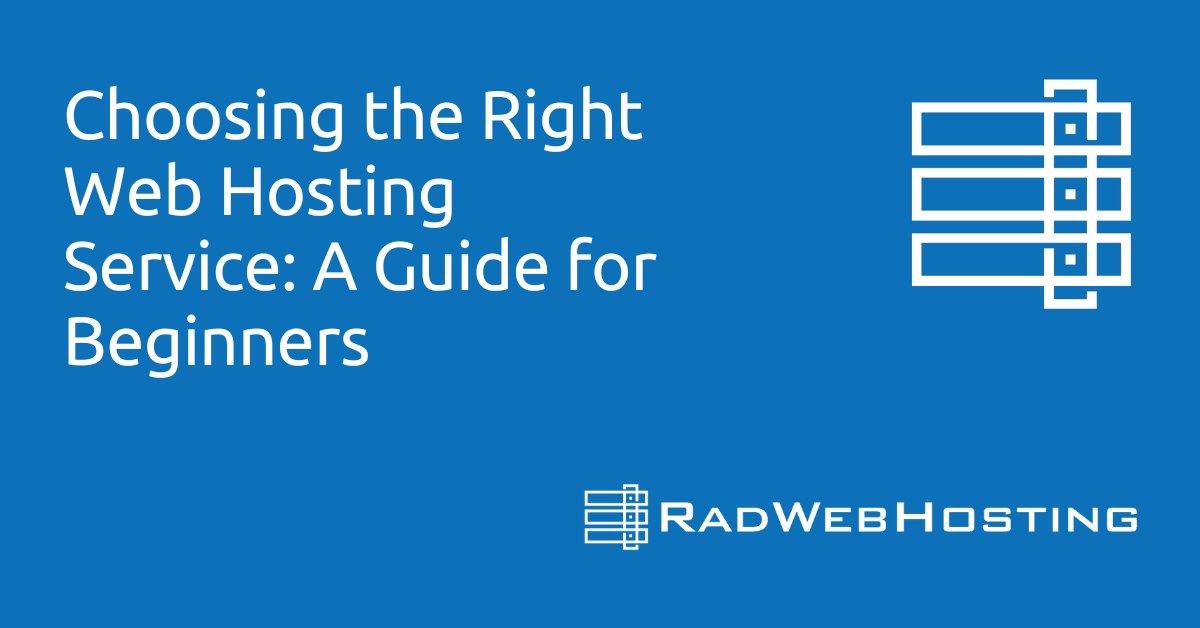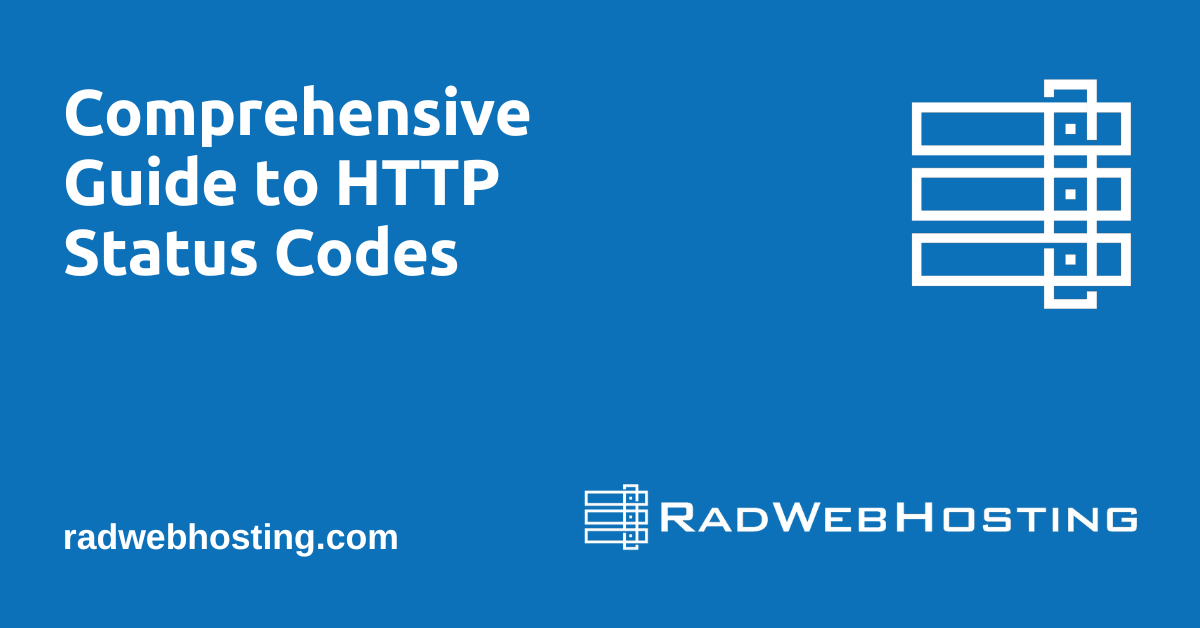 Overview
Overview
What is web hosting?
Web hosting is a service that allows individuals and organizations to make their websites accessible on the internet. It involves storing website files on a server, which is a powerful computer that is connected to the internet 24/7. When a user types in a website address, the server delivers the website files to their device, allowing them to view and interact with the website. Web hosting providers offer different types of hosting plans, such as shared hosting, virtual private server (VPS) hosting, and dedicated server hosting, each with its own features and pricing. Choosing the right web hosting service is crucial for the success of a website, as it affects its speed, reliability, security, and overall performance.
Importance of choosing the right web hosting service
Choosing the right web hosting service is crucial for the success of your website. A reliable and high-performance hosting service ensures that your website is always accessible to visitors, providing a seamless browsing experience. It also plays a significant role in website speed, security, and overall performance. With numerous web hosting providers available, it is essential to carefully evaluate their features, pricing, customer support, and reputation before making a decision. By selecting the right web hosting service, you can ensure that your website is in good hands and optimize its performance for both search engines and users.
Factors to consider when choosing a web hosting service
When choosing a web hosting service, there are several factors to consider. First, you need to determine your website’s requirements, such as the amount of storage and bandwidth you will need. Additionally, consider the type of website you have or plan to build, as different hosting services may be better suited for specific platforms, such as WordPress or e-commerce sites. It is also essential to assess the reliability and uptime of the hosting service, as you want your website to be accessible to users at all times. Furthermore, consider the level of customer support provided by the hosting service, as prompt and knowledgeable support can be crucial in resolving any issues that may arise. Finally, take into account the pricing and plans offered by different hosting providers, ensuring that they align with your budget and provide the necessary features for your website’s success.
Shared hosting is a type of web hosting service where multiple websites are hosted on a single physical server. In this setup, the resources of the server, such as CPU power, memory, and disk space, are shared among the websites. This makes shared hosting an affordable option for beginners and small businesses who don’t require a large amount of resources. However, since the resources are shared, the performance of one website can be affected by the traffic and activities of other websites on the same server.
Shared hosting is a popular choice for beginners due to its affordability and ease of use. With shared hosting, multiple websites are hosted on a single server, resulting in lower costs for each user. This makes it an attractive option for individuals and small businesses with limited budgets. However, shared hosting also has its drawbacks. Since resources are shared among multiple websites, performance can be affected if one website experiences high traffic or uses excessive resources. Additionally, security can be a concern as vulnerabilities in one website can potentially impact others on the same server. It is important for users to consider their specific needs and weigh the pros and cons before choosing a shared hosting service.
When choosing a shared hosting provider, there are several factors to consider. First, you need to assess your website’s needs and determine the amount of storage, bandwidth, and resources required. It is important to choose a provider that offers enough resources to support your website’s growth. Additionally, consider the provider’s uptime guarantee and customer support. A reliable hosting provider should have a high uptime guarantee to ensure that your website is accessible to visitors at all times. Good customer support is also crucial, as you may need assistance with technical issues or have questions about your hosting plan. Finally, compare the pricing and features of different hosting providers to find the best value for your money. Look for providers that offer a good balance between affordability and quality services. By considering these factors, you can choose the best shared hosting provider for your website.
Virtual Private Server (VPS) Hosting
What is VPS hosting?
VPS hosting, short for Virtual Private Server hosting, is a type of web hosting service that offers a virtualized server environment. Unlike shared hosting, where multiple websites share resources on a single server, VPS hosting provides dedicated resources to each website. This means that the performance and security of your website are not affected by other websites on the same server. With VPS hosting, you have more control over your server settings and can customize it according to your specific needs. It is an ideal choice for websites that require more power, flexibility, and security than shared hosting can provide.
Advantages and disadvantages of VPS hosting
VPS hosting, or Virtual Private Server hosting, offers several advantages for website owners. One of the main advantages is the increased performance and reliability compared to shared hosting. With VPS hosting, you have dedicated resources that are not shared with other users, allowing your website to run smoothly even during high traffic periods. Additionally, VPS hosting provides more control and customization options. You have root access to your server, which means you can install and configure software according to your specific needs. This level of control is especially beneficial for businesses that require specific software or have unique server requirements. However, VPS hosting also has some disadvantages. It is typically more expensive than shared hosting, as you are paying for dedicated resources. Additionally, managing a VPS server requires technical knowledge and skills. If you are a beginner or do not have the expertise to manage a server, VPS hosting may not be the best option for you.
Factors to consider when selecting a VPS hosting provider
When selecting a VPS hosting provider, there are several factors to consider. First, it is important to assess the provider’s reliability and uptime guarantee. A reliable hosting provider should have a high uptime percentage, ensuring that your website is accessible to visitors at all times. Additionally, consider the scalability options offered by the provider. As your website grows, you may need to upgrade your hosting plan to accommodate increased traffic and resource demands. It is also essential to evaluate the level of technical support provided by the hosting provider. A responsive and knowledgeable support team can help resolve any issues or concerns quickly. Lastly, consider the pricing and payment options available. Compare the costs of different hosting providers and choose one that fits within your budget while offering the necessary features and resources for your website’s needs.
SEE ALSO: How to Choose the Best VPS Hosting Services
Dedicated Server Hosting
Understanding dedicated server hosting
Dedicated server hosting is a type of web hosting service where the entire server is dedicated to a single website or client. Unlike shared hosting, where multiple websites share the same server resources, dedicated server hosting offers more control, flexibility, and reliability. With dedicated server hosting, the client has exclusive access to all the server resources, including CPU, RAM, storage, and bandwidth. This allows for better performance, security, and scalability. Dedicated server hosting is ideal for websites with high traffic, resource-intensive applications, or specific security requirements. However, it is also more expensive and requires technical expertise to manage and maintain.
Benefits and drawbacks of dedicated server hosting
Dedicated server hosting offers several benefits for businesses and individuals looking for reliable and high-performance web hosting solutions. One of the key advantages is the exclusive use of server resources, which ensures optimal performance and security. With a dedicated server, users have full control over the server environment, allowing them to customize it according to their specific needs. Additionally, dedicated servers offer scalability, allowing businesses to easily upgrade their resources as their website traffic grows. However, dedicated server hosting also has some drawbacks. It is typically more expensive than shared hosting or virtual private servers, making it less suitable for small businesses or individuals with limited budgets. Additionally, managing a dedicated server requires technical expertise, as users are responsible for server maintenance, security, and software updates. Despite these drawbacks, dedicated server hosting remains a popular choice for businesses and individuals who prioritize performance, security, and customization.
Key factors to look for in a dedicated server hosting provider
When choosing a dedicated server hosting provider, there are several key factors to consider. First and foremost, reliability is crucial. You want a provider that guarantees high uptime and minimal downtime. Security is another important factor to look for. A good hosting provider should have robust security measures in place to protect your website and data from cyber threats. Additionally, scalability is essential. As your website grows, you want a hosting provider that can easily accommodate increased traffic and resource demands. Lastly, customer support is crucial. You want a provider that offers 24/7 support and quick response times to resolve any issues that may arise. By considering these key factors, you can ensure that you choose the right dedicated server hosting provider for your needs.
Reseller Hosting
Definition of reseller hosting
Reseller hosting is a type of web hosting service that lets you buy hosting resources from a hosting provider and resell them to your own customers. Unlike traditional hosting methods that rely on a single server, reseller hosting uses a network of interconnected servers, often located in different data centers. This distributed infrastructure allows for greater scalability, flexibility, and reliability, as resources can be easily allocated and adjusted based on demand. Additionally, cloud hosting offers enhanced security measures, as data is stored across multiple servers and can be quickly restored in the event of hardware failures or other issues. Overall, reseller hosting provides a robust and efficient solution for websites and online applications, particularly for those with high traffic volumes or fluctuating resource requirements.
Pros and cons of reseller hosting
Reseller hosting offers several advantages for beginners. One of the main benefits is scalability, as it allows you to easily adjust your resources based on your website’s needs. Additionally, reseller hosting provides high reliability and uptime, as your website is hosted on multiple servers, reducing the risk of downtime. Another advantage is cost-effectiveness, as you only pay for the resources you use. However, there are also some drawbacks to consider. Reseller hosting can be more complex to set up and manage compared to traditional hosting options. Additionally, if you experience a sudden surge in traffic, you may incur additional costs. Overall, reseller hosting is a popular choice for beginners due to its flexibility and scalability, but it’s important to weigh the pros and cons before making a decision.
Choosing the right reseller hosting provider
When it comes to choosing a reseller hosting provider, there are several factors to consider. First, you need to assess your specific needs and requirements. Are you looking for a provider that offers scalability and flexibility? Do you need a provider that specializes in a particular industry or technology? Additionally, you should consider the reliability and performance of the provider’s infrastructure. Look for a provider that offers a high level of uptime and fast response times. Security is also a crucial factor to consider. Ensure that the provider has robust security measures in place to protect your data and applications. Finally, consider the pricing and support options offered by the provider. Look for a provider that offers competitive pricing and provides responsive customer support. By carefully considering these factors, you can choose the right reseller hosting provider that meets your specific needs and ensures a reliable and secure hosting environment for your website or application.
Conclusion
Summary of key points
When choosing a web hosting service, beginners should consider factors such as reliability, performance, security, customer support, and pricing. It is important to assess the uptime guarantee and server speed to ensure that the website will be accessible and load quickly. Additionally, the hosting provider should have robust security measures in place to protect against cyber threats. Adequate customer support is essential for resolving any technical issues or concerns that may arise. Lastly, beginners should compare pricing plans to find a service that fits within their budget while still offering the necessary features and resources.
Final thoughts on choosing the right web hosting service
When it comes to choosing the right web hosting service, there are several factors to consider. One important factor is the availability of domain registration. Domains are the unique addresses that users type into their browsers to access websites. It is essential to choose a web hosting service that offers domain registration, as this will make it easier for you to manage your website and ensure that your chosen domain is available. Additionally, having your domain and hosting services from the same provider can simplify the setup process and streamline your website management. Therefore, when selecting a web hosting service, don’t forget to check if they provide domain registration.
Next steps in selecting a web hosting provider
After understanding the basics of web hosting and considering the factors mentioned earlier, the next step in selecting a web hosting provider is to research and compare different options. Start by making a list of potential providers that meet your requirements and budget. Then, thoroughly examine their features, pricing plans, customer reviews, and support services. It is also important to check their uptime guarantees and server reliability. Additionally, consider reaching out to their customer support to assess their responsiveness and knowledge. By conducting thorough research and comparison, you can make an informed decision and choose the right web hosting provider that aligns with your needs and goals.
 Overview
Overview







[…] your customers’ needs—what kind of hosting services do they require? Do they need dedicated servers, shared hosting, VPS hosting, or cloud servers? How critical are […]